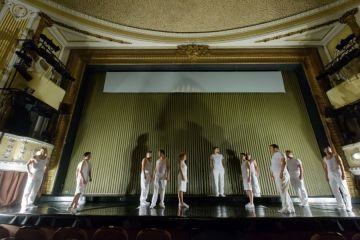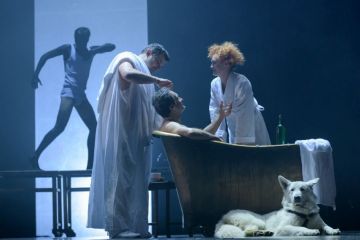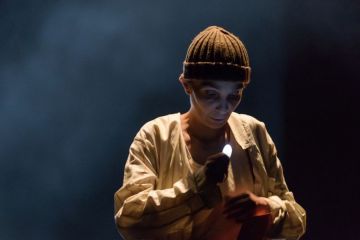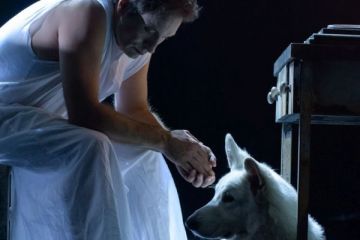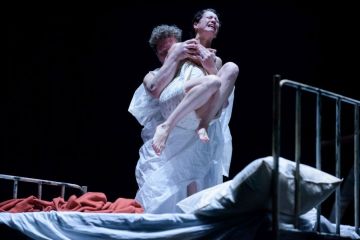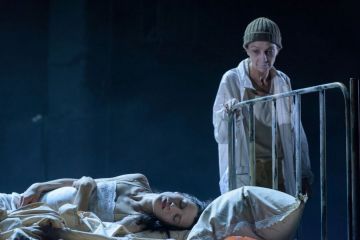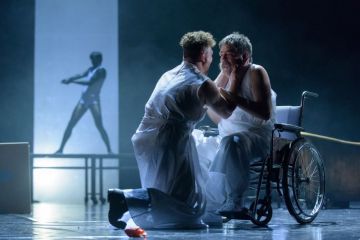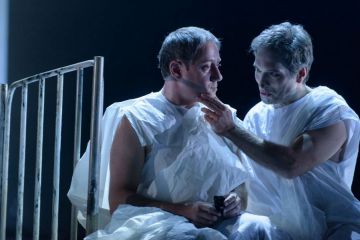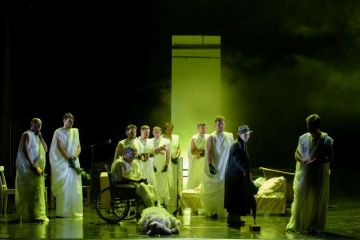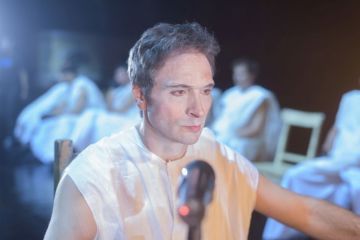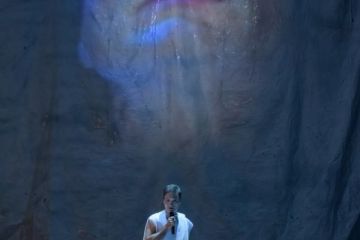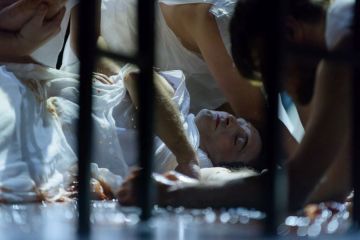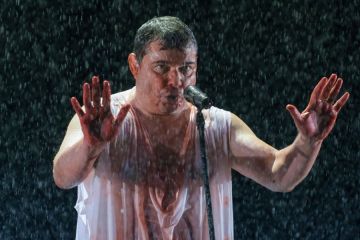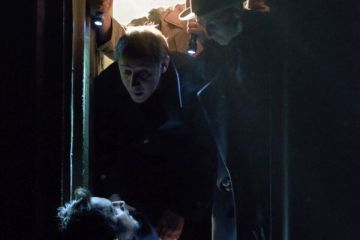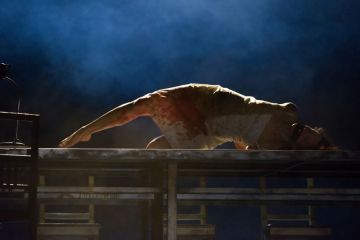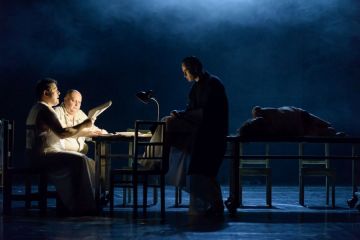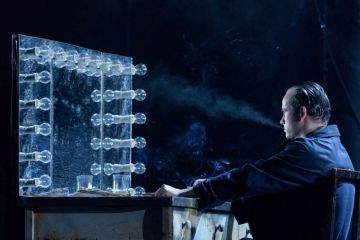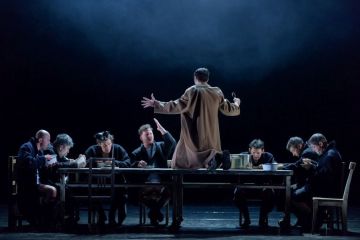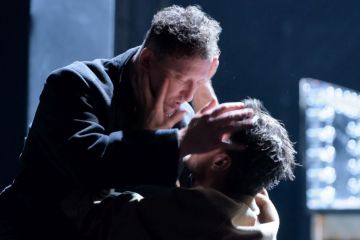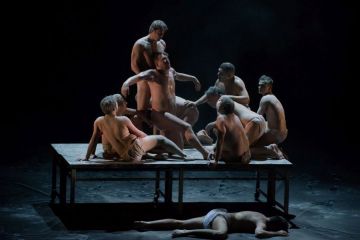William Shakespeare
Julius Caesar
Hungarian translation by György Jánosházy, adaptaptation by András Visky
Main stage
RO

EN

12+

2h with intermission
Julius Caesar
Zsolt Bogdán
Marcus Antonius
Miklós Bács
Marcus Brutus
Gábor Viola
Cassius
Szabolcs Balla
Calpurnia
Emőke Kató
Portia
Enikő Györgyjakab
Soothsayer
Csilla Albert
Servant / Octavius
Balázs Bodolai
Decius / Messala
Áron Dimény
Casca
Lóránd Váta
Lucius
Melinda Kántor
Trebonius
Loránd Farkas
Metellus
Alpár Fogarasi
Ligarius / Cicero / The Poet
Sándor Keresztes
Publius / Cinna, the poet
Róbert Laczkó Vass
Cinna
Ervin Szűcs
Lepidus
János Platz
directed by
Silviu Purcărete dramaturg
András Visky set and costume design
Dragoș Buhagiar music composed by
Vasile Șirli director's assistant
István Albu dramaturg's assistant
Réka Biró video images
Cristian Pascariu correpetition
Zoltán Horváth stage manager
Pál Böjthe, Zsolt Györffy
Zsolt Bogdán
Miklós Bács
Gábor Viola
Szabolcs Balla
Emőke Kató
Enikő Györgyjakab
Csilla Albert
Balázs Bodolai
Áron Dimény
Lóránd Váta
Melinda Kántor
Loránd Farkas
Alpár Fogarasi
Sándor Keresztes
Róbert Laczkó Vass
Ervin Szűcs
János Platz
directed by
Silviu Purcărete
András Visky
Dragoș Buhagiar
Vasile Șirli
István Albu
Réka Biró
Cristian Pascariu
Zoltán Horváth
Pál Böjthe, Zsolt Györffy
Date of the opening: October 09, 2015
Date of the opening: 9 October 2015Duration: 2 hours with one intermission
Julius Caesar is perhaps Shakespeare’s toughest political drama, and it is amazing not only because of its perfect insight, but because of its surprising timeliness. The conspiracy of the Republican party organized by Brutus and his company for the public good does not establish order, but induces civil war and decay in Rome. Are we on the same road, a road beginning with the Arab Spring that will end with world chaos?
András Visky
“For many strange prodigies and apparitions are said to have been observed shortly before the event. As to the lights in the heavens, the noises heard in the night, and the wild birds which perched in the forum, these are not perhaps worth taking notice of in so great a case as this. Strabo, the philosopher, tells us that a number of men were seen, looking as if they were heated through with fire, contending with each other; that a quantity of flame issued from the hand of a soldier’s servant, so that they who saw it thought he must be burnt, but that after all he had no hurt. As Cæsar was sacrificing, the victim’s heart was missing, a very bad omen, because no living creature can subsist without a heart. One finds it also related by many, that a soothsayer bade him prepare for some great danger on the ides of March. When the day was come, Cæsar, as he went to the senate, met this soothsayer, and said to him by way of raillery, ‘The ides of March are come’; who answered him calmly, ‘Yes, they are come, but they are not past.’”
Plutarch: Parallel Lives (fragment)
András Visky
“For many strange prodigies and apparitions are said to have been observed shortly before the event. As to the lights in the heavens, the noises heard in the night, and the wild birds which perched in the forum, these are not perhaps worth taking notice of in so great a case as this. Strabo, the philosopher, tells us that a number of men were seen, looking as if they were heated through with fire, contending with each other; that a quantity of flame issued from the hand of a soldier’s servant, so that they who saw it thought he must be burnt, but that after all he had no hurt. As Cæsar was sacrificing, the victim’s heart was missing, a very bad omen, because no living creature can subsist without a heart. One finds it also related by many, that a soothsayer bade him prepare for some great danger on the ides of March. When the day was come, Cæsar, as he went to the senate, met this soothsayer, and said to him by way of raillery, ‘The ides of March are come’; who answered him calmly, ‘Yes, they are come, but they are not past.’”
Plutarch: Parallel Lives (fragment)










